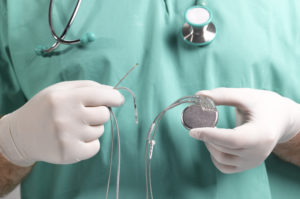 In recent months, the Kaiser Health Network (part of the Kaiser Family Foundation) has issued three reports scrutinizing the orthopedic industry and its practices. Each report articulates the stakeholder group’s concerns over relationships among orthopedic and spinal surgeons, orthopedic implant manufacturers, and their sales representatives. Medical device manufacturers, especially those in the orthopedic space, should pay careful attention.
In recent months, the Kaiser Health Network (part of the Kaiser Family Foundation) has issued three reports scrutinizing the orthopedic industry and its practices. Each report articulates the stakeholder group’s concerns over relationships among orthopedic and spinal surgeons, orthopedic implant manufacturers, and their sales representatives. Medical device manufacturers, especially those in the orthopedic space, should pay careful attention.
- The first report (June 2021) dives deeply into payments made by medical device makers to orthopedic surgeons who use their products. Kaiser highlights government allegations against orthopedic medical device makers (focusing specifically on the recent SpineFrontier matter) that they pay “sham consulting fees” to spinal surgeons for “doing little or not work.” Kaiser identifies what it considers to be troublesome payments from medical device makers to surgeons that implant their products, including royalty payments (for “helping to design implants”), speakers’ fees (“for promoting devices at medical meetings”), to stock ownership provided in exchange for consulting. Kaiser notes that, from 2013 through 2019, the orthopedic industry has paid $3.1 billion to its surgeon consultants, highlighting the potential to “corrupt medical judgment and tempt surgeons to perform unnecessary and wasteful operations.” The patient stakeholder group also spotlights what it considers to be a “startling array of schemes to influence surgeons,” including compensation for joining a medical society created by a medical device company; purchasing billboard space to advertise medical practitioners; providing employment to surgeon’s relatives, and entertainment/sporting activities. The patient stakeholder group also emphasizes that “more than 600,000 American doctors lap up industry largesse . . . [mostly] through small payments that cover the cost of food, drinks, and travel to industry-sponsored events.”
- A second report (August 2021) highlights the relationships between orthopedic makers and their sales reps, who are often called upon to provide technical support to surgeons in the operating room during surgeries. Device makers assert that having sales representatives must be present for certain procedures to ensure the proper functioning of highly complicated surgical equipment and to make sure that the right scope of surgical tools and equipment are available. Critics, however, argue that the practice demonstrates the coziness between sales reps and physicians. The Kaiser report states that it is like “the relationship of a caddy and an avid golfer” and that “[d]uties can include lugging 20-pound sets of surgical hardware to the operating room, assuring it is sterile and knowing its specifications,” even though – according to Kaiser – reps are not required to be trained medically. Critics further assert that companies are spending excessively for top sales talent, and the amount of money creates bad incentives, including failures to track injuries and pushing for unneeded surgeries. The result, according to Kaiser, is an increase in patient injuries and harm, which the stakeholder group asserts often go unreported.
- A third report (August 2021) places a spotlight on the issue of orthopedic surgeons taking ownership interests in private medical device companies, often referred to as PODs, including highly lucrative payments for selling and using products and as a result of larger medtech companies purchasing privately held medical device makers. Kaiser highlights the potential for incentivizing unnecessary surgeries and the negative consequences on patients. CMS has, in fact, recently proposed updates to its Open Payments (Sunshine Act) program to clarify requirements for physician-owned distributors to help ensure all of these payments are appropriately captured, reported, and publicly disclosed.
Should medical device makers pay attention to the Kaiser reports? Yes, especially makers of orthopedic devices. Increased interest from key patient stakeholder groups like Kaiser can only mean that others are also watching. We have not seen any let-up in the continued enforcement of the federal fraud and abuse laws against medical device companies. And as the government keeps the heat on the orthopedic industry, companies should consider undertaking an independent, third-party compliance assessment that addresses the following:
- Policies and practices on engaging health care providers to serve as consultants, including selection criteria, evaluation of payments, controls to limit influence, and documentation of services provided, focusing on royalties, speaker fees (see OIG’s November 2020 Special Fraud Alert on Speaker Programs), and payments for technical training, among others.
- Policies and practices on physician ownership, including whether there are appropriate controls and measures for assessing when it is appropriate to provide ownership interests to physicians, especially given CMS’s recent ramp-up of interest in physician-owned distributorships.
- Policies and practices relating to sales representatives in the operating room to support procedures, including identifying the extent to which videoconferencing and other virtual technologies might be used instead of permitting a rep’s in-person presence in the operating room.
- Policies and practices on disclosure of payments and transfers of value made to physicians and other healthcare practitioners (as required under the Sunshine Act) and conflicts of interest, as these concerns are central to the criticisms lobbed by Kaiser and by the government in its enforcement actions.
A periodic, independent review of compliance practices helps ensure better alignment not only with federal healthcare fraud and abuse laws but also with compliance best practices and ethical principles that prioritize and protect patients. If you have any questions, please contact Matt Wetzel (mwetzel@goodwinlaw.com) or (202-346-4208).
The post Patient Stakeholder Group Zeroes in on Medical Device Industry appeared first on Life Sciences Perspectives.